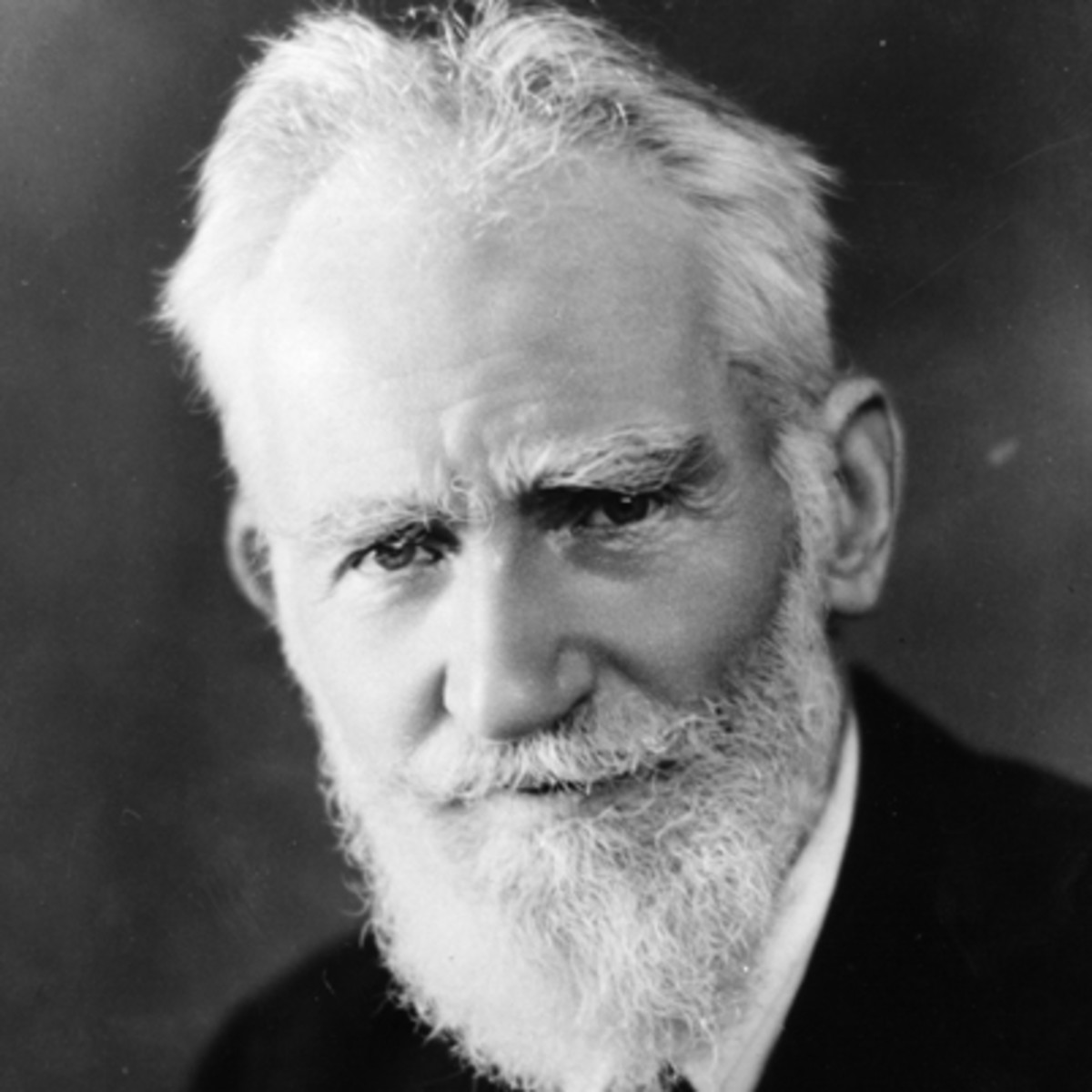
George Bernard Shaw
Biography
George Bernard Shaw was born July 26, 1856, in Dublin, Ireland. In 1876 he moved to London, where he wrote regularly but struggled financially. In 1895, he became a theater critic for the Saturday Review and began writing plays of his own. His play Pygmalion was later made into a film twice, and the screenplay he wrote for the first version of it won an Oscar. During his lifetime, he wrote more than 60 plays and won many other awards, among them the Nobel Prize.
Early Life
Playwright George Bernard Shaw was born in Dublin, Ireland, on July 26, 1856. The third and youngest child, Shaw's early education took the form of tutoring sessions provided by his clerical uncle.
Early on, Shaw explored the worlds of the arts (music, art, literature) under his mother's guidance and through regular visits to the National Gallery of Ireland. In 1872, Shaw's mother left her husband and took Shaw's two sisters to London, and four years later Shaw followed (his younger sister had died in the meantime), deciding to become a writer.
Unfortunately, despite the time he spent writing them, his novels were dismal failures, widely rejected by publishers. Shaw soon turned his attention to politics and the activities of the British intelligentsia, joining the Fabian Society in 1884. The Fabian Society was a socialist group whose goal was nothing short of the transformation of England through a more vibrant political and intellectual base, and Shaw became heavily involved, even editing a famous tract the group published (Fabian Essays in Socialism, 1889).
The year after he joined the Fabian Society, Shaw landed some writing work in the form of book reviews and art, music and theater criticism, and in 1895 he was brought aboard the Saturday Review as its theater critic.
Shaw's first plays were published in volumes titled "Plays Unpleasant" (containing Widowers' Houses, The Philanderer and Mrs. Warren's Profession) and "Plays Pleasant" (which had Arms and the Man, Candida, The Man of Destiny and You Never Can Tell). The plays were filled with what would become Shaw's signature wit, accompanied by healthy doses of social criticism, which stemmed from his Fabian Society leanings. These plays would not go on to be his best remembered, or those for which he had high regard, but they laid the groundwork for the oversized career to come.
Works
Toward the end of the 19th century, beginning with Caesar and Cleopatra (written in 1898), Shaw's writing came into its own, the product of a mature writer hitting on all cylinders. In 1903, Shaw wrote Man and Superman, whose third act, "Don Juan in Hell," achieved a status larger than the play itself and is often staged as a separate play entirely. Works such as Major Barbara (1905), The Doctor's Dilemma (1906), Pygmalion (1912), Androcles and the Lion (1912) and Saint Joan (1923) all firmly established Shaw as a leading dramatist of his time. In 1925, Shaw was awarded the Nobel Prize in Literature.
Pygmalion, one of Shaw's most famous plays, was adapted to the big screen in 1938, earning Shaw an Academy Award for writing the screenplay. Pygmalion went on to further fame when it was adapted into a musical and became a hit, first on the Broadway stage (1956) with Rex Harrison and Julie Andrews, and later on the screen (1964) with Harrison and Audrey Hepburn.
